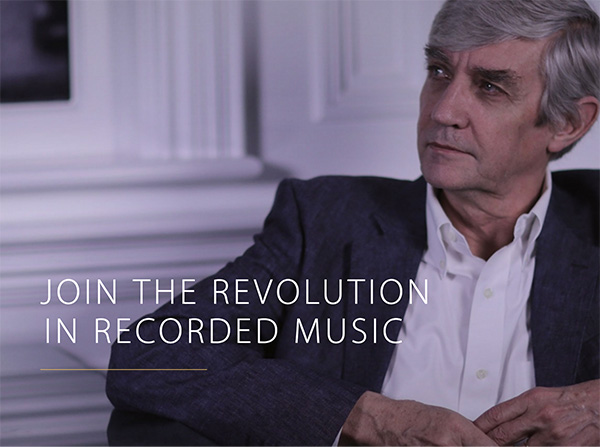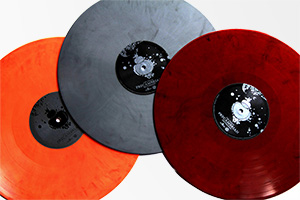I’m not going to attempt to delve into the technical side of MQA, or whether it has any merits from an audio performance point of view. There are plenty of people at Linn far more qualified than me to report on MQA’s questionable claims. If you are here for the technical insight, you might not want to read any further, but please do just give me a few moments of your time…
I want to explain why MQA is bad for music
It’s an opinion formed through my experience as an artist, manager, label owner, and from negotiating download service agreements with distributors, indies and major labels; as well as helping market Linn’s products and technology too.
From the off, it’s worth noting that MQA appears, at it’s heart, to be a major label venture: a collaboration between Warner and hi-fi manufacturer Meridian. They are also seeking buy-in and investment from all the other majors, large indies and conglomerates.
The majors hold what they see as the crown jewels of music; they own some of the all-time great recordings and have extensive rights to a huge catalogue. They can, and do, use this as leverage over emerging music service providers and vendors, knowing the power of content ubiquity and how vital a comprehensive catalogue is to a new service or technology gaining traction and being successful.

Is MQA a ‘revolution in recorded music’ or a massive expansion of corporate power?
The rights they hold provide diminishing returns—the long-tail is shorter than expected by their share holders—so it is requirement that they leverage these recordings as effectively as possible, and sell them to us again and again. There is, of course, value to the listener in buying a studio master quality version of an album but once they own it, that’s it, the revenue stream ends.
But as the landscape of content consumption changes from a commodity and ownership model, to one of utility and renting access—streaming—they know the balance of control over revenue streams is in flux, and gaining control over it is vital. Observe the power that video streaming services such as Netflix and Amazon wield over film studios (even becoming content producers themselves, cutting studios out entirely) and you’ll understand how appealing gaining control over the entire supply chain would seem. And that's exactly what MQA is gearing up for.
A supply chain monopoly
MQA is an attempt to not simply sell the same content again at a higher margin, or to maintain audio quality in streaming ecosystems: it is an outright land grab. It’s an attempt to control and extract revenue from every part of the supply chain, and not just over content that they hold the rights for. It really is quite extraordinary. Let’s break it down:
Manufacturers of recording equipment will have to license the technology and adapt their products
Developers of recording software systems will require certified software plug-ins
Recording and Mastering engineers must purchase and use certified equipment and software
Artists must use studios and engineers utilising certified equipment and new workflows; or even pay to have their back catalogue ‘remastered’ in MQA. The costs, of course, are borne by the artist, either directly or recouped from royalties
Digital distributors will have to license MQA and purchase/lease a ‘Hyper-Security Module’ to encrypt/encode/watermark files ready for delivery to download services
Download and Streaming service providers will have to agree to commercial terms and become partners from which…
Physical media manufacturers can use MQA to author on to CD and DVD, presumably there will be licensing agreement required for this too
Hi-fi manufacturers and software developers will have to adapt their products and license the technology
End customers, having paid a premium for MQA music via licensed content providers, will also have to buy MQA certified players at increased cost, with a license paid for each unit shipped
No DRM? Not so fast.
It’s interesting to see that it’s a key selling point of MQA that there is no Digital Rights Management (DRM) involved. They know that consumers hate copy protection, and it would be a non-starter it include it. But to say there is no DRM isn’t strictly true, it’s simply a matter of perspective… there is a form of fingerprinting in the file that will check that at each stage of the production and distribution process MQA has been paid. Now, ostensibly, this is a quality assurance check for the customer: if the little MQA light comes on, then I know that this file is legit. When in reality this is actually a quite masterful way of painting every other recording as inferior—when exactly the opposite may be the case—unless they are produced, distributed, downloaded and played via their approved supply chain. I could be playing a 24-bit 192kHz file straight from the studio, delivered to me in person by the artist herself and yet I am left with the feeling that this file is illegitimate; I’m not greeted by the warming glow of the MQA branding.
It also doesn’t require too much imagination to envisage a situation where, in the name of thwarting piracy, music players will only play MQA streams. Or perhaps they’ll insert ads before non-MQA content. None of this is proposed by the company, and in fact we are assured that they have no plans to do this. Perhaps we should give them the benefit of the doubt? But once the supply chain is dominated, the technology certainly gives them a way to achieve it, and shareholders want returns.
The worst kind of middleman
The music industry is built on middlemen. The manager, label, publisher, distributor, aggregator, streaming provider, the hi-fi manufacturer; they all stand between the artist and you. That’s not to say these organisations don’t provide valuable services: producing, marketing, and reproducing music is hard and financially risky. I’ve got no problems with people making a living from it: I’m one of those people too of course.
But with the MQA approach, we have the worst kind of middleman: solving a problem that has already been, or could be, solved by free and open alternatives, and yet expecting—no, demanding—to be paid again and again for contributing nothing of value. This is rentier capitalism, serving only to suck money out of the system, and stifling creativity in the process. It’s detrimental to society.
Stifling creativity
The people who will suffer from this are the at either ends of the chain: you and the artist.
For you, you’ll pay a higher price for the same music, and you’ll pay more for your hi-fi system too. And even if you don’t buy into MQA, everyone will get less innovation, creativity and poorer music as a result.
For the artist the additional production costs will be recouped from royalties, and the increased supply chain costs will mean smaller royalties in the first place.
The end result of higher production and distribution costs is also reduced investment in new music, and increased focus back on old and proven catalogue or a concentration of resources on a smaller pool of artists. It’s the majors aiming to get paid for old-rope, rather than being rewarded for risks on new music. It acts as a throttle on creative risk taking.
In addition, by monopolising the supply chain, it aims to cut out indie labels and self-producing/releasing artists—or at the very least it demands a tax on their creativity. A self-producing artist, or small project recording studio, now has to work through a larger MQA equipped mastering studio and bear the costs and constraints. Oh, and artists that serve music direct to fans via their own website or direct at gigs? Well, they’re cut out too: the piper has to be paid.
There's still hope
It does sound bleak doesn’t it? However I’m still hopeful. We’ve been here before. There was a time when we fretted that Apple Lossless format would doom us to vendor lock-in, but in due time it was opened up. And there was the perhaps more comparable SACD format, which had similarly onerous supply chain requirements, that struggled and died.
In the end I’m confident that the free, readily available, high quality, open-source alternatives will win out. Lock down, centralisation and profiteering has a tendency towards failure.


